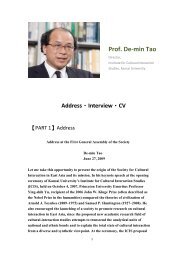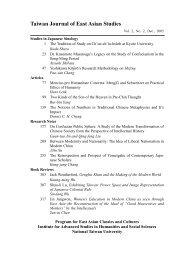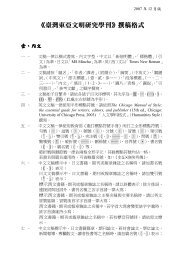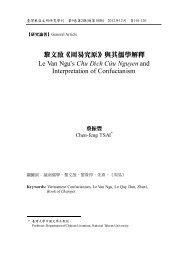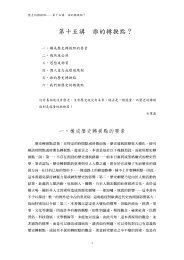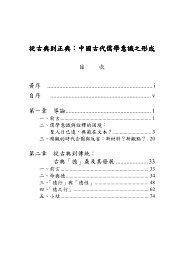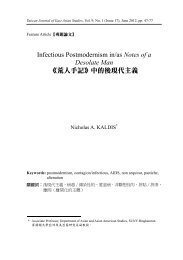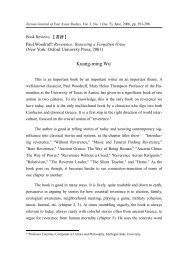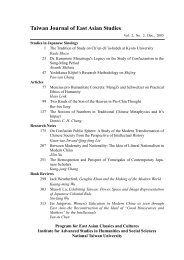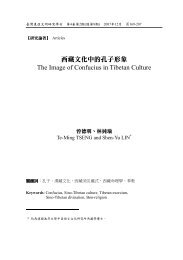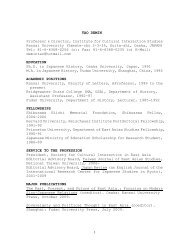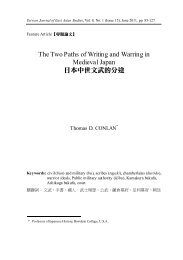臺灣東亞文明研究學刊 - 東亞經典與文化研究計畫 - 國立臺灣大學
臺灣東亞文明研究學刊 - 東亞經典與文化研究計畫 - 國立臺灣大學
臺灣東亞文明研究學刊 - 東亞經典與文化研究計畫 - 國立臺灣大學
Create successful ePaper yourself
Turn your PDF publications into a flip-book with our unique Google optimized e-Paper software.
Jeng-Guo CHEN Scottish Discussions of Indian Effeminacy in the Eighteenth Century 155<br />
manufactures in the East. During the empire of the Moguls, the trade of<br />
India was carried on by the followers of Brahma. 7<br />
Dow's description of discrepancy between the Mohammedans and Hindus was<br />
commonly accepted by the British public. So was the theory that the Hindu's<br />
contribution to English trade resulted directly from his natural obedience and<br />
effeminacy. In the age of mercantilism, it was the "humane, obedient, and<br />
industrious" followers of Hinduism, not vigorous and warlike Muslims, who were<br />
considered friends of British society. As we shall see, the Napoleonic wars inspired<br />
Scottish writers to cast the British merchant as the protector of the effeminate and<br />
industrious Hindus, who were threatened by the valiant but destructive Muslims.<br />
Hinduization in Scottish Historical Theory<br />
Montesqueiu's influence on Scottish ideas about commerce and luxury was by<br />
no means hegemonic. In the famous essay "Of Refinement in the Arts," in which he<br />
also took on Rousseau, Hume rejected Montesquieu's explanation for the decline of<br />
the Roman Empire. To Montesquieu's assertions that the disorders in the late<br />
Roman republic arose thanks to the accumulation of Asian luxuries, Hume replied<br />
that riches were available at all times and to all men. If luxury were judged guilty of<br />
corrupting Rome, it would have to be held responsible for every empire that had<br />
suffered the same fate: Montesquieu's argument had no etiological value. 8<br />
Furthermore, Hume assured his readers, luxury did not sap martial spirit, as many<br />
had suggested. "Those who would ascribe this effeminacy of the Italians to their<br />
luxury, or politeness, or application to the arts, need but consider the French and<br />
English, whose bravery is as uncontestable, as their love for the arts, and their<br />
7 Ibid., pp. xxxv-xxvi.<br />
8 Though Hume here quoted from Sallust, he must have had in mind Montesquieu's recently<br />
published work on the decline of Roman Empire.<br />
vii



